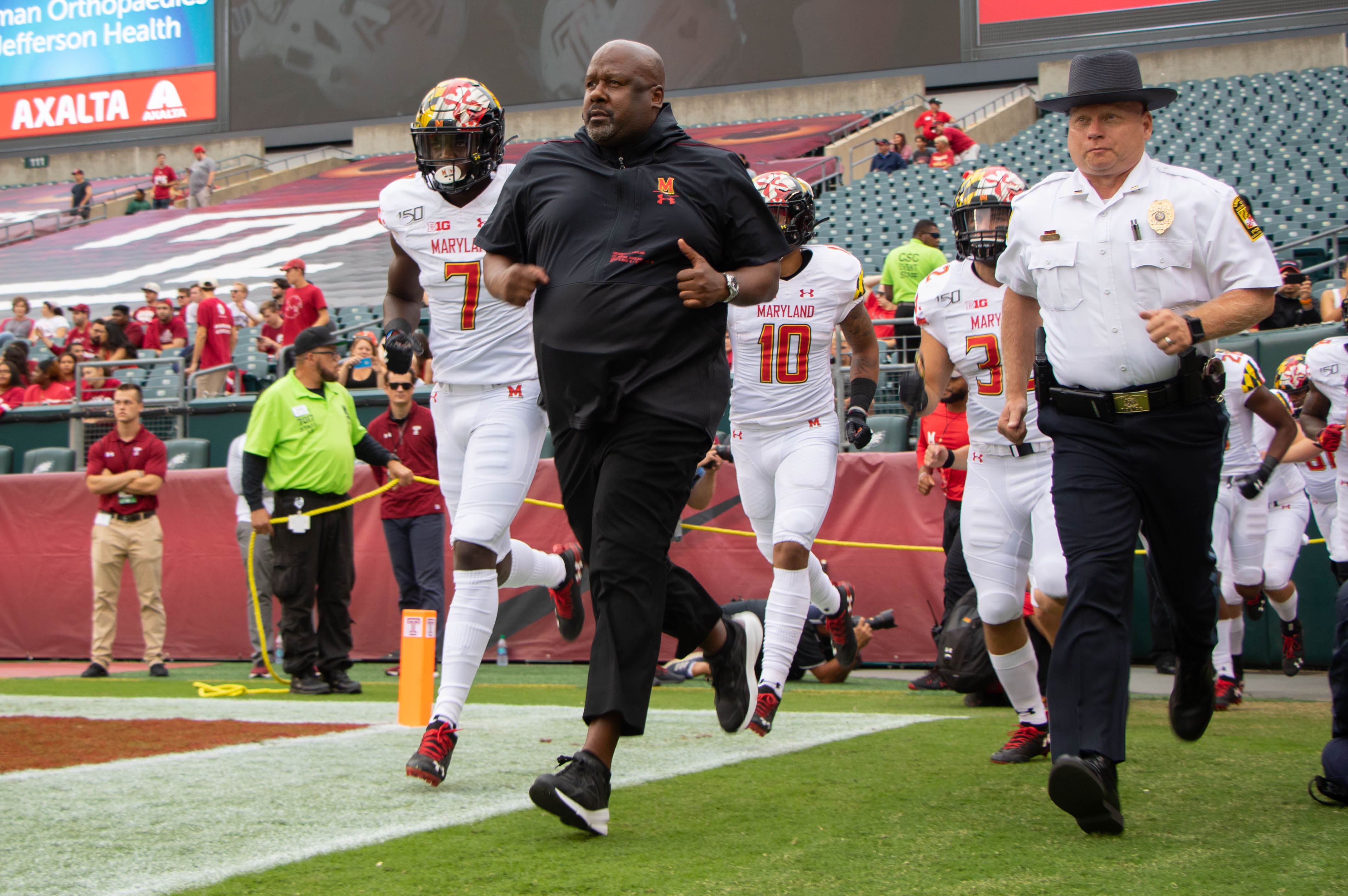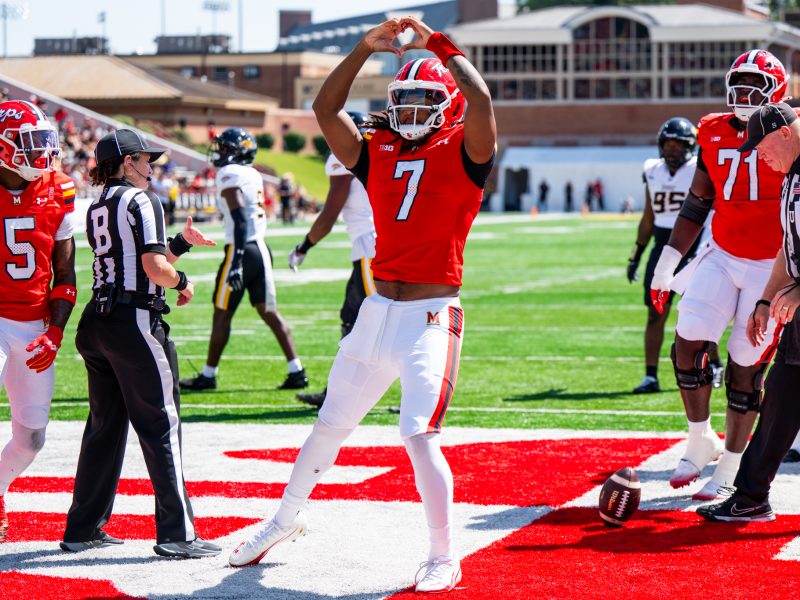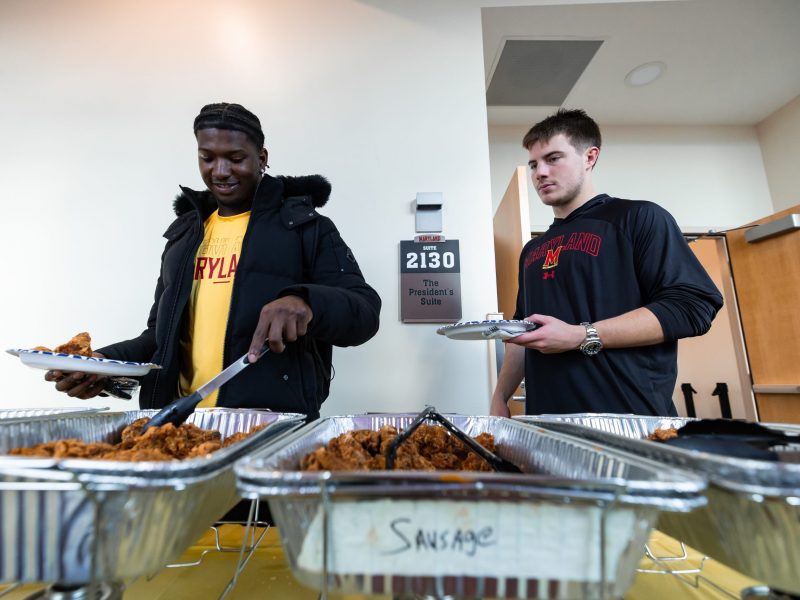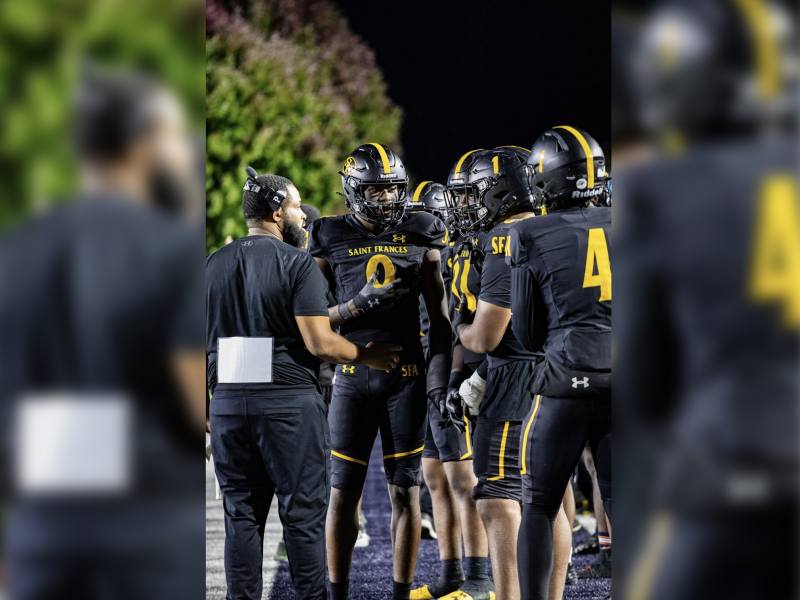Mike Locksley knows what it’s like to be on both ends of the ordeal. He was relieved of his first head coaching job after he went 2-26 at New Mexico. And when Randy Edsall was fired in 2015, Locksley was thrust into the interim head coach role for Maryland football.
Job security in high-level athletics is only as sturdy as the win column. Locksley knows, now four games into his full-time stint as head coach in College Park. So does Chris Ash.
The Rutgers coach was fired Sunday, one day after a 52-0 defeat against Michigan that relegated the Scarlet Knights to 1-3. Ash, early in his fourth season, finished with an 8-32 record. So when the Terps play in Piscataway, New Jersey, on Saturday, they don’t know what to expect.
Rutgers will have tight ends coach Nunzio Campanile filling in as interim head coach and offensive coordinator. What that means for personnel groupings, play-calling and effort level will be unknown to Maryland until some point after kickoff. But based on his own background, Locksley knows a coaching change can produce a sudden boost, one the Terps may feel the full force of this weekend.
“There’s nothing worse than playing a team that doesn’t have much to lose,” Locksley said. “Knowing Coach Ash and the type of team that he developed, the team will rally together to form a bond and play for each other.”
[Read more: Maryland football hopes Sunday’s players-only meeting helps put Penn State behind them]
In 2018, Maryland went through its own coaching change — one infinitely more complicated than the Scarlet Knights’s, due to offensive lineman Jordan McNair’s death and the investigations into the program that followed. When the Terps beat Texas in their season opener for the second straight year, the energy was for McNair.
With then-coach DJ Durkin on administrative leave and interim head coach Matt Canada in charge, Maryland’s players rallied together. Now, they anticipate the Scarlet Knights to be similarly invigorated.
“Every situation’s different,” offensive lineman Sean Christie said. “For us last year, we all banded together as a team. I don’t see any reason why they wouldn’t do the same thing. So I would expect to get a pretty fiery Rutgers team.”
When Locksley took over for Edsall in 2015, he remembers slightly changing the order in which practices were run but leaving much of the existing structure as it was. His main focus, he said, was to make sure his seniors enjoyed their last campaign in college despite dealing with the uncertainty a coach’s firing brings.
While Rutgers will likely look different than it has in its first four games, Locksley doesn’t expect to see wholesale changes. The Scarlet Knights aren’t likely to switch from a spread offense to a wishbone scheme — “At least I don’t think you can within a three-day period,” Locksley said.
[Read more: Running back was Maryland football’s deepest position, but injuries have thinned it]
However, there’s a weight lifted from a team and the remaining coaching staff after a firing. Two years ago, Campanile was coaching at Bergen Catholic, a powerhouse high school in New Jersey. As Locksley pointed out, Campanile doesn’t have much pressure in this gig — expectations are low. It’s an unlikely opportunity to take over a Big Ten program with eight games remaining.
“When I was the interim coach, one of the things I know I used to say is that, ‘You can do anything you want, you can fake punts,’” Locksley said. “So, our guys have to be prepared for any and everything, because again, these guys have nothing to lose.”
So to combat the unpredictability of what Rutgers will look like at SHI Stadium, the Terps are preaching focus on themselves and hope they can make smooth in-game adjustments. Rather than worrying about what running back Raheem Blackshear or quarterback Johnny Langan could do, Maryland wants to fix the issues that plagued the team during its 59-0 loss to Penn State.
If Locksley’s squad can do that, whatever is happening on — or whoever is standing on — the opponent’s sideline shouldn’t matter.
“It honestly goes back to like, Week 1,” defensive back Antoine Brooks said, “when nobody knows what anybody’s running.”



